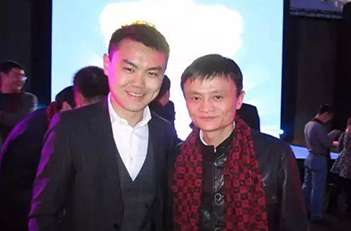An example our regional neighbors must follow
By Viktor Vekselberg (chinadaily.com.cn) Updated: 2012-06-05 16:47One of the documents signed during Russian Federation President Vladimir Putin's state visit to China on 5-7 June 2012 will be a cooperation agreement between the Skolkovo Foundation and the Beijing-based Z-Park. This agreement marks a transition to full-scale collaboration in high technologies between Russia and China. Our countries thus set an example for all our partners and neighbors in the region, specifically those who have gathered in Beijing for the summit of the Shanghai Cooperation Organization.
Today's world thoroughly understands that in order to overcome crises in the global economy, we need to dramatically step up labor productivity, and the only way to do so is to pursue innovative development. This holds true for both the most economically developed countries in the world and transition economies, including the Shanghai Cooperation Organization member-states. In this day and age, we have to take on similar economic challenges, and it would be wise if we addressed them together.
The Russian economic development strategy aims to transition from a raw material-based economy to an innovation-driven economy. Pivotal to this strategy is Russia's largest innovation center, Skolkovo, which will create an ideal environment to promote and commercialize cutting-edge technologies. Skolkovo, a town outside of Moscow, will be built by 2014, but the project is already underway. Skolkovo will soon have 500 participants—technology companies and research centers. In 2011, foreign investments in our technology projects amounted to $150 million; in 2012, it will more than double. According to our calculations, in five to seven years, Skolkovo will be able to do without government funding.
International cooperation in high technologies is an attribute of the contemporary world. No matter how rich and advanced, no country can successfully develop innovative technologies on its own. In this context, Skolkovo is essentially an international project. We foster international cooperation on various levels. These include joint research by Russian and foreign scientists, collaboration between Russian and foreign research centers, and outside investment in our technology projects by foreign venture companies and funds. Finally, more than half of Skolkovo's 30 key partners are major western corporations, including Microsoft, Intel, IBM, Cisco, EADS, Siemens, Ericsson, and Nokia. Most of them plan to set up their own R&D centers in Skolkovo, where Russian and foreign scientists, engineers and managers will be working together.
However, our scientific and technological cooperation with our close neighbors, including the SCO member-states is not active enough, and this is our failure, because we have so much to share. For instance, the People's Republic of China has made a major breakthrough in high tech development in recent years and has created large technoparks. China has accumulated abundant experience in implementing new technologies in production. Furthermore, China is successfully developing its own high technologies, and companies such as Lenovo and Huawei have turned into globally renowned brands, which attests to the success of the Chinese innovation development model. For its part, Russia has always been known for its development of the fundamental sciences. Our cooperation in the scientific sphere has a long history that dates back to Soviet times, which is why Russian partners are confident that both nations can benefit from our collaboration in the field of innovation. China must have reached the same conclusion, and the result was not slow in coming: we have completed very demanding preparatory work and in quite short time have come very close to the start of real cooperation.
We commenced active talks in March, and on 5 June it was a great honor for both Director General of the Administrative Committee of Zhongguancun Science Park (Z-Park) Guo Hong and me to sign a cooperation agreement between the Skolkovo Foundation and Z-Park. This proves that if there is political will, innovation cooperation between neighboring countries can develop at an accelerated pace.
The great Confucius once said: "Among three men who are walking together, I am certain to find my teacher." There are six members of the Shanghai Cooperation Organization, making twice as many of us, and the first steps in the collaboration between Russia and China make it clear that there is no need to go far to look for partners to promote innovation together, as we all have something to learn from our neighbors. We can and we must advance down the path of innovative development together.
Viktor Vekselberg is president of the Skolkovo Foundation.











